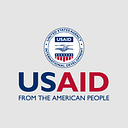A Shared Vision of a World Free of Hunger
Meet the winners of USAID’s Office of Food for Peace 2018 Photo Contest! Together with partners, we’re feeding hungry people around the world and equipping them with tools to feed themselves in the future. Glimpse into the transformative impact of U.S. food assistance through these photos.
This week, millions of Americans will celebrate Thanksgiving. For many of us, the holiday is about coming together with family and friends over food. It is a time for celebration, but it is also a time for reflection. We are reminded of our guiding vision for a world free of hunger and poverty, where all people live in dignity, peace and security.
The response to this year’s Food for Peace Photo Contest was tremendous. We are grateful to have such a talented community that cares passionately about the work they do, and the people they are helping. Each and every submission serves as an important reminder of why food assistance is so critical, particularly in this day and age. The families we work with every day struggle to meet their nutritional needs, make household decisions, boost their crop production and earn enough income. Read on to see our top five photo contest winners and the important work they highlight.
Meeting Nutritional Needs in Kenya
Years of prolonged drought in northeast Kenya devastated crops and livestock, and with it the livelihoods of millions. Malnutrition spiked to emergency levels, affecting mothers like Lokaala Kole and her small children. USAID, through the UN World Food Program, distributed packets of fortified flour formulated to supplement the nutritional needs of vulnerable groups. For Lokaala, and other families in remote areas, supplementary feeding programs ensure that her children continue to grow and develop through difficult times.
Breaking Gender Stereotypes in Bangladesh
In southwest Bangladesh, gender stereotypes are deeply entrenched and pervasive in many households. Men make financial decisions, but when it comes to household chores and child care, the burden unduly falls on women. USAID, through World Vision, uses cooking and feeding sessions to break down gender norms and promote positive nutrition practices. Bringing fathers into the fold — whether through cooking, feeding or buying healthy foods — is a giant step toward shared responsibility and household decision making.
Increasing Incomes in Malawi
Chikwawa District in Malawi has battled a long history of food insecurity due to drought. Subsidized agricultural vouchers allow smallholder farmers like Alefa Tom to purchase drought-resistant seeds for the upcoming agricultural season. By diversifying her crops to include maize, cabbage, tomatoes and rice, Alefa no longer fears that an entire harvest will fail due to drought. Along with 50 other farmers, she is part of a community rice collective that shares land and collectively sells goods at fair market price. Strategic business planning like Alefa and the other farmers do through this rice collective not only enhances livelihoods, it improves food security and better prepares communities for future shocks.
Diversifying Diets in Guatemala
Don Pablo is a farmer in Mariposa, a community in Western Guatemala that has seen several years of extreme drought. Through an emergency food security program run by USAID partner Project Concern International, Don Pablo has learned new farming methods to increase access to nutritious vegetables at home. Providing Don Pablo with a rainwater harvester, drip irrigation system and technical assistance has given him the necessary tools and training to sustain these new production practices and to protect his family’s resilience. He has successfully grown 10 varieties of vegetables and learned how to harvest his own seeds, imparting this knowledge to other farmers in his community.
Boosting Crop Production in Burundi
In Gasorwe village in Burundi, Reverien Ndarurerere cultivates a new variety of disease resistant cassava with cuttings provided through USAID. The improved seeds and cuttings boost production of nutritious fruits and vegetables, empowering local farmers in the fight against malnutrition in their communities. Through Catholic Relief Services, households can increase their production, equipping families with the knowledge and tools to feed themselves.
About the Author
USAID’s Office of Food for Peace saves lives and tackles chronic hunger and poverty through U.S. food assistance. Expressing the generosity of the American people, we bring help and hope to ordinary people in desperate situations, and have reached more than 4 billion people with food assistance since 1954. Follow Food for Peace on Twitter @USAIDFFP.

